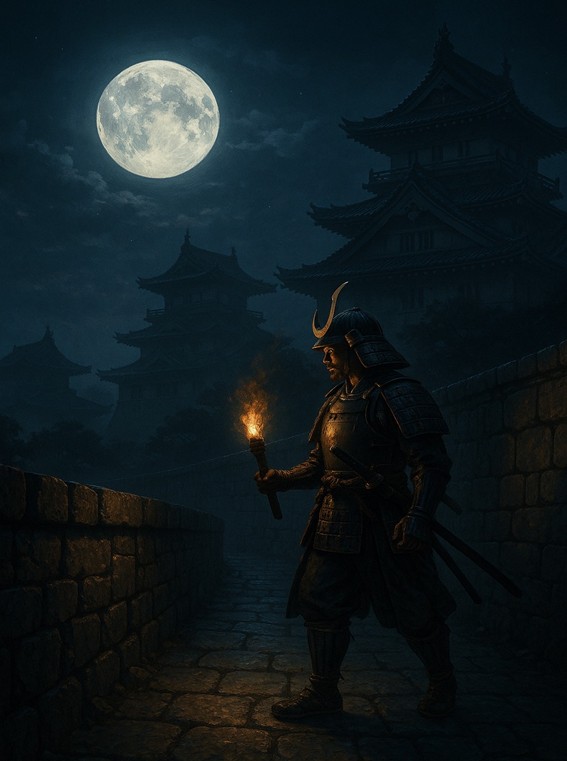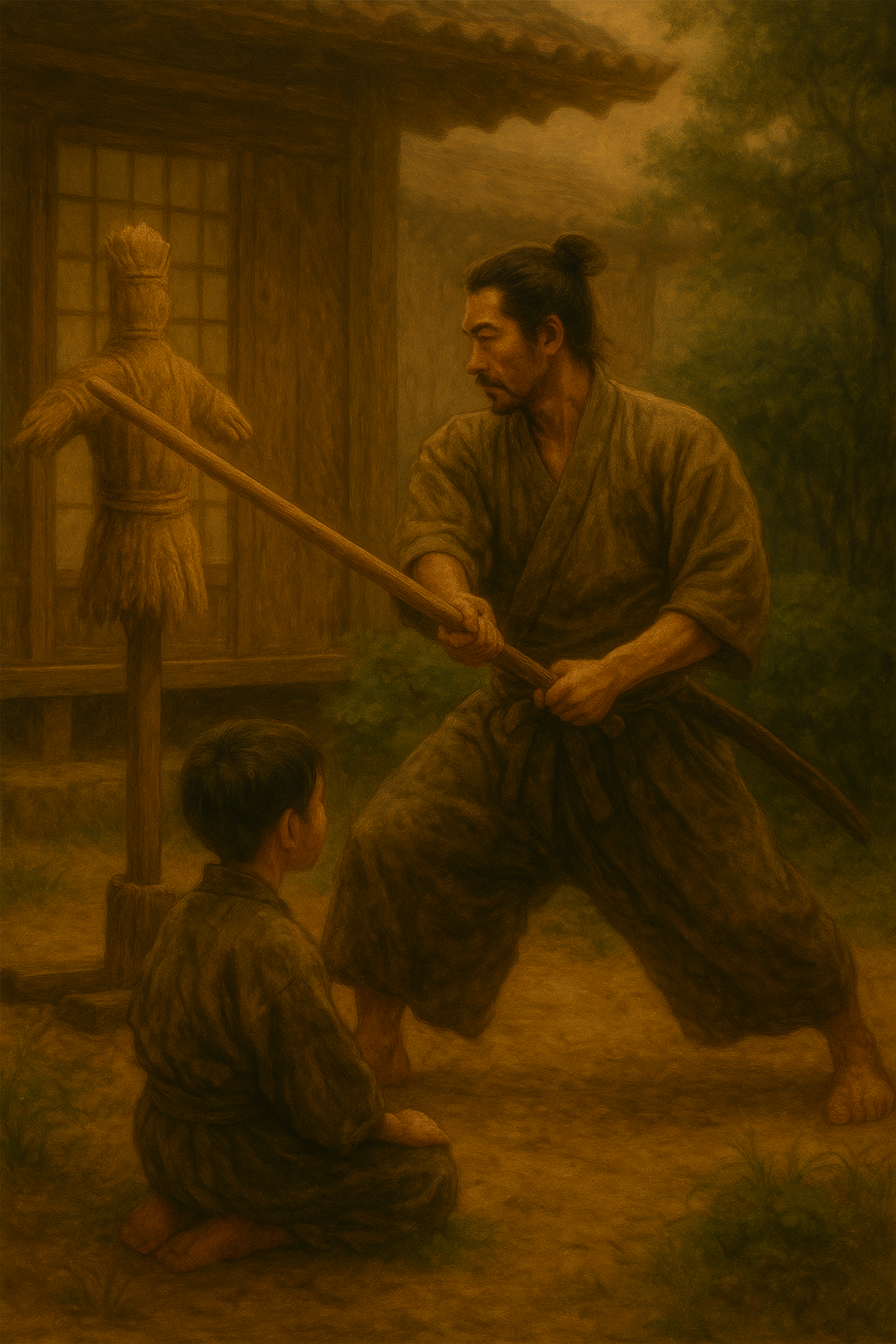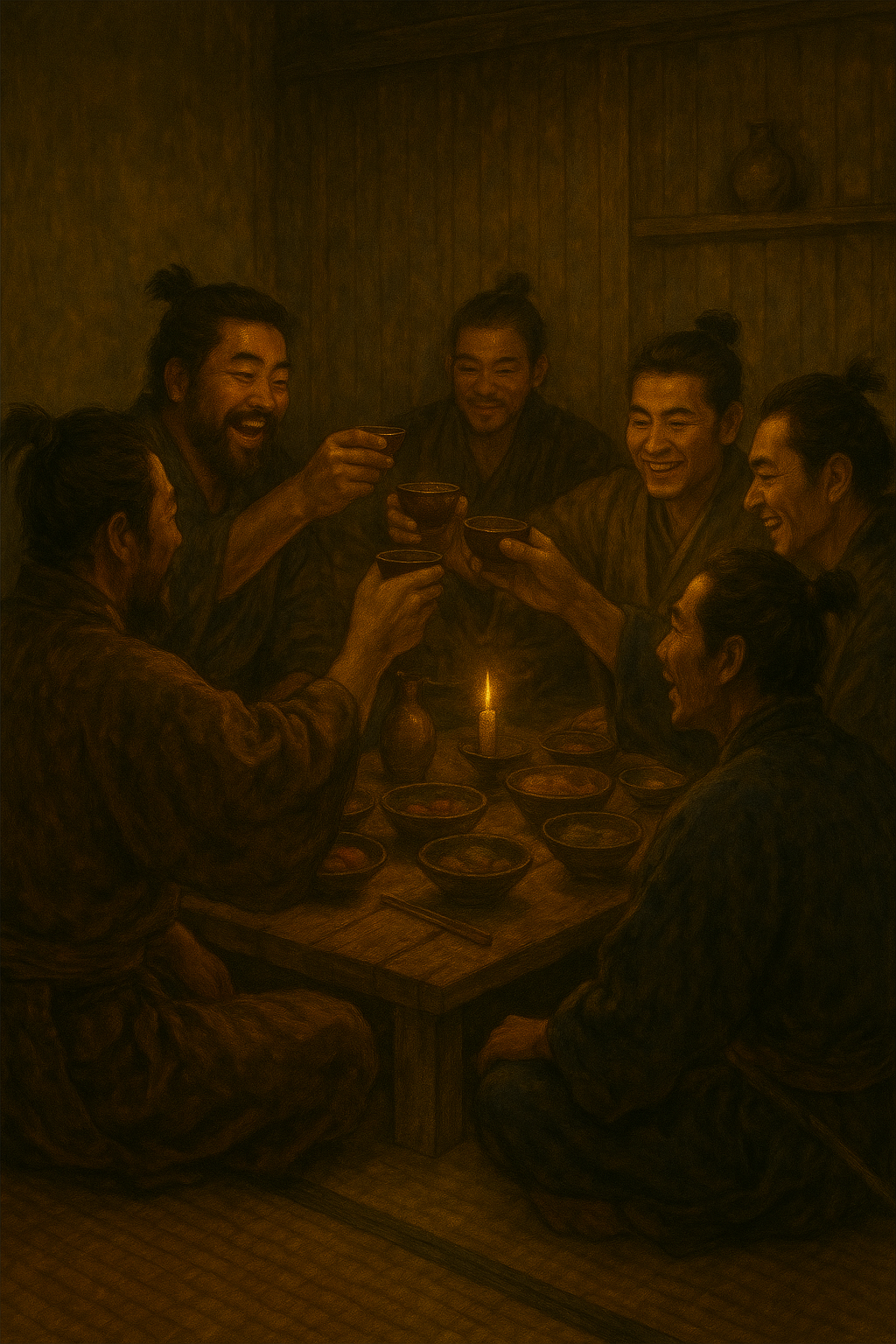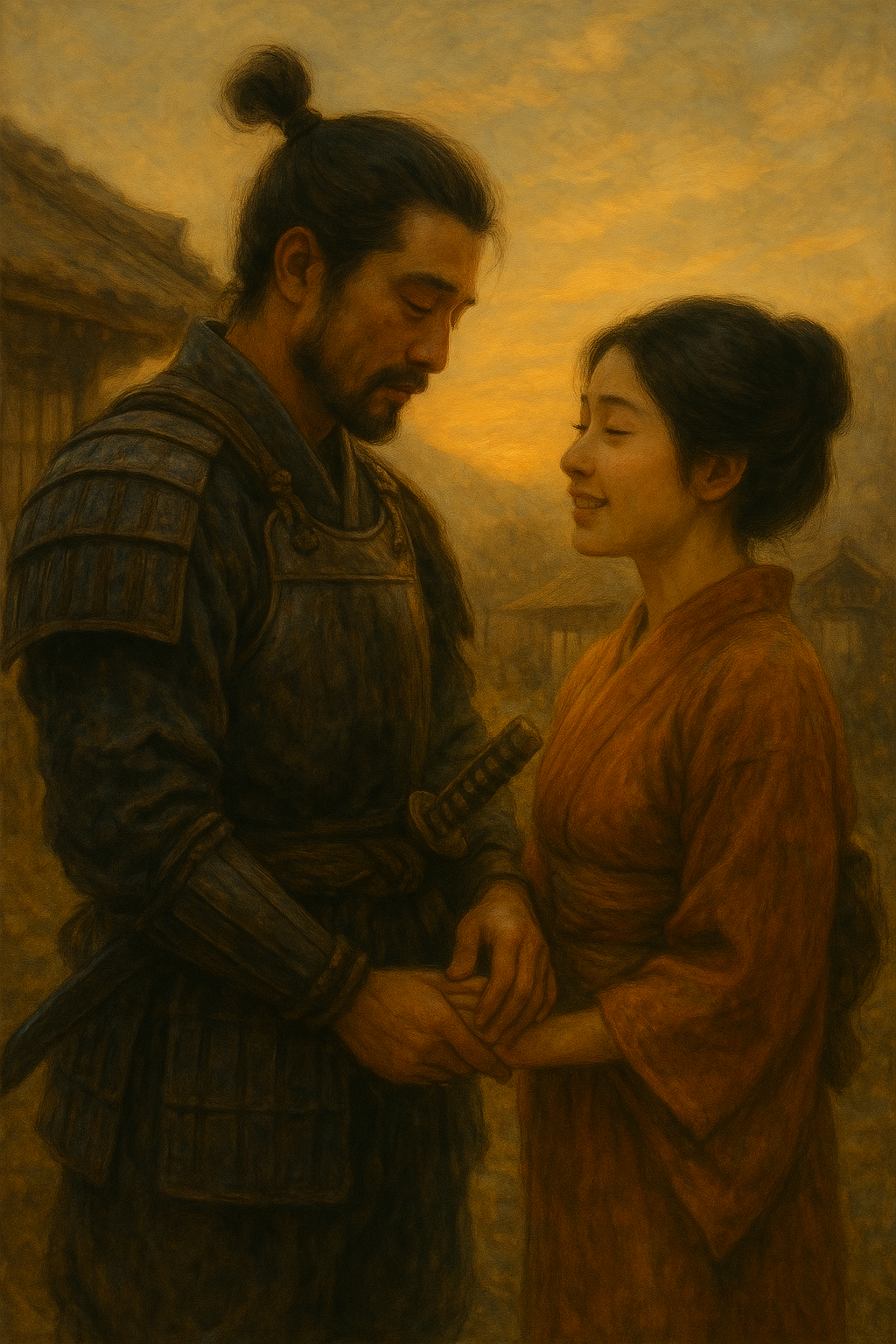On this night, Himeji Castle in Harima Province gleamed under the moonlight, its white keep rising like a heron against the dark sky.
Though the land was said to enjoy peace under the Tokugawa shogunate, the vigilance of the samurai never wavered. Acting on the orders of the castle lord, Honda Tadatoki, ashigaru unit leader Matsuda Yagorō quietly patrolled along the western walls.
Beneath his feet lay the town, hushed and still, as though the bustle of the day had been a lie. From the distant moat came the rustle of waterfowl, and the moon shimmered upon the rippling surface.
Within the deep shadows of the stone walls, Yagorō raised his hand lantern, searching for any trace of movement. The greater danger was not invaders but fire, or unrest within the castle itself. The brightness of the moon made the night both clear and deceptive—its light revealed much, yet also cloaked the hidden.
From atop a turret, a fellow young samurai signaled with a small wave: no disturbances. Yagorō returned the gesture with a nod and continued on his path.
Thus, the quiet of the night was preserved.
For a samurai’s honor was not forged only on the battlefield; unseen labors in the stillness of night were battles of their own, upholding the safety of the castle and all within.



